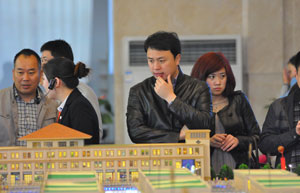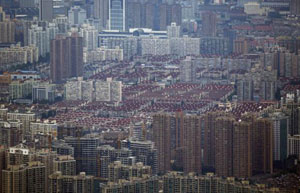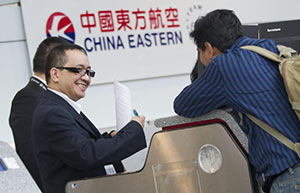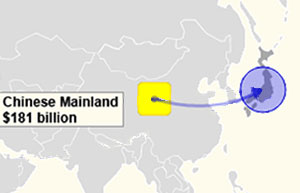Expert sees soft landing in end to real estate boom
By Emma Dai in Hong Kong (China Daily) Updated: 2014-06-27 07:06As long as job market thrives, no reason to worry, economist says
Although real estate data continue to show stagnant growth and home prices remain under pressure, China is still on track to carry out structural reforms, and a so-called "hard landing" for the recent property boom is unlikely, according to an economist from DBS Bank.
"Lots of Western economists insist on a pessimistic view of China because of bleak data so far this year," said Chris Leung, executive director and senior economist of DBS Bank (HK) Ltd. "However, we believe there is no need to exaggerate risk. China's growth rate has been gradually slowing for 12 quarters in a row. If this is not a soft landing, then what is it?"
Leung stressed that deceleration is in line with the central government's plans, calling it the cost of the structural reform it has vowed to carry out. "The leadership is determined to sacrifice growth for reform. Unlike many, we don't think the PBOC is going to lower interest rates or cut RRR (reserve requirement ratios) in the second half. There will not be countrywide stimulus again. The Chinese government has tried and ruled it out," Leung told a group of Hong Kong reporters on Thursday.
"As long as the labor market is healthy - where we do see a number of new jobs - the economy is fine," he said, adding that recent mini-stimulus efforts focusing on investment in rural areas were not associated with any shift in current monetary policy.
On June 6, the International Monetary Fund trimmed China's economic growth forecast for 2015 from 7.3 percent to 7 percent, lower than the 7.5 percent government target. In the first quarter, China's economy expanded at an annual pace of 7.4 percent, the slowest in 24 years.
The People's Bank of China, the central bank, has extended RRR twice this year to aid small enterprises and business in the countryside. Standard Chartered Bank, one of the banks that anticipates a loosening monetary policy, reported on Wednesday that the third quarter will see massive measures to boost liquidity and rescue GDP growth.
"China's problem is more structural, far beyond what mini-stimulus can solve," Paul Chan, Asia ex-Japan chief investment officer for Invesco HK Ltd, told a media briefing on Thursday in Hong Kong.
"As the economy tries to transform from export-driven to domestic consumption-driven, the yuan is no longer cheap, and the labor force is aging," he said. "Domestic reform is very hard to implement. It's moving money from one sector to another. It's a zero-sum game."
 |
 |
| Property weakness overhangs recovery | Realty price swings may pose short-term risks |
- Selling real-estate gets creative
- Brokers out of commission as real estate developers delay payments
- UBS turns to Chinese commercial real estate
- Economy should grow beyond real estate sector
- Real estate fair kicks off in Tianjin's Binhai New Area
- China's real estate market: collapse or managed slowdown?
- Alibaba plans to list shares on NYSE
- Forex deposit rate caps lifted
- China Eastern Airlines launches direct flight to Toronto
- Top 10 best global green brands
- Regulator calls foul on World Cup 'regret' insurance
- Report calls for building inland nuclear power stations
- Infrastructure biggest challenge for Silk Road
- Prime London properties lure investors

















